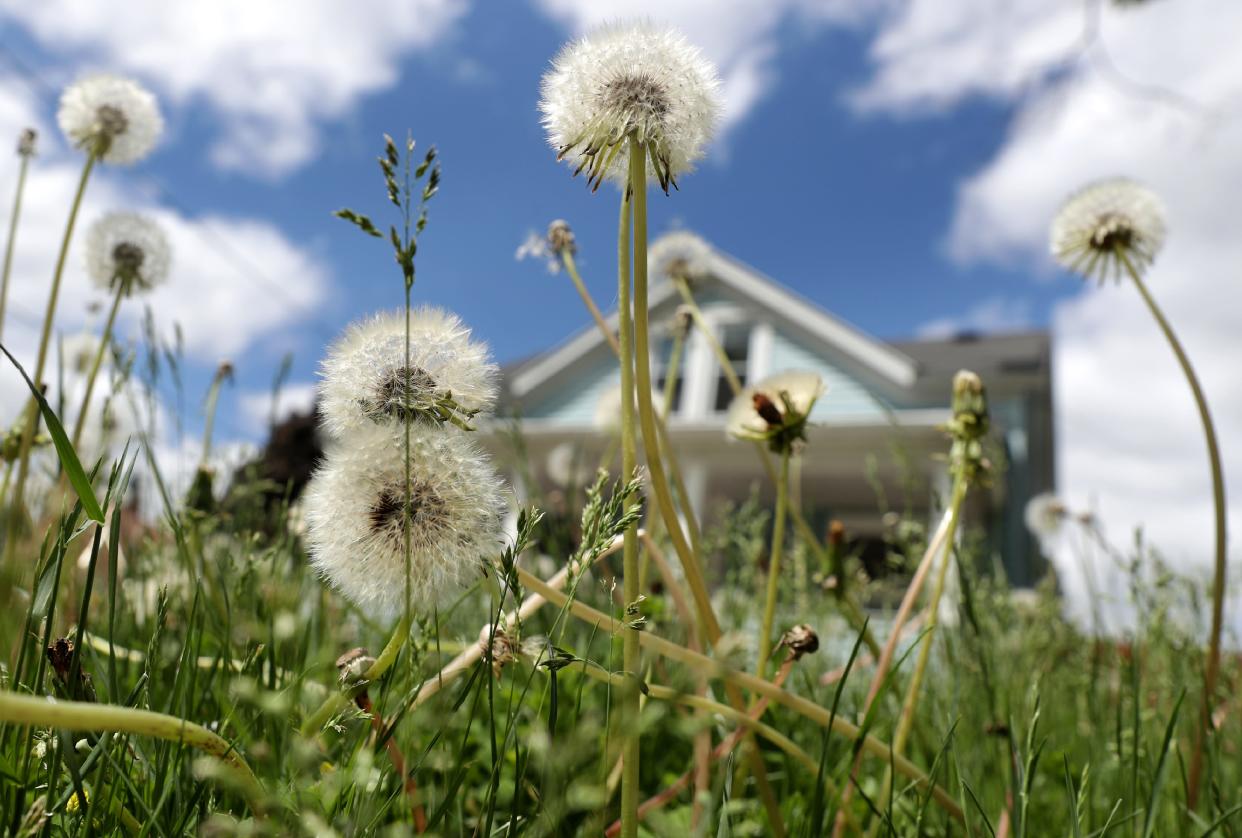No Mow May spreads to additional Wisconsin communities to support pollinators

APPLETON – It's May Day, and that means residents in Appleton, Fond du Lac, Green Bay, Oshkosh, Stevens Point, Wausau, Wisconsin Rapids and other communities can postpone mowing their lawns during the month as a way to help pollinators.
Appleton Common Council member Israel Del Toro, an assistant professor of biology at Lawrence University and an early promoter of No Mow May, said about 60 communities across the country have implemented the program.
Under No Mow May, local governments suspend the enforcement of ordinances regulating tall grass and weeds so property owners can let their lawns grow to promote the maturation of flowering plants that provide food for bees and other pollinators early in the growing season. Participation is voluntary.
"It's an opportunity to think about all of the other little things that we can do for our pollinators," Del Toro told The Post-Crescent. "Not mowing is a place to start, but it shouldn't be the last thing to do to help our pollinators. Instead, consider planting native species, restoring pollinator habitat or talking to your neighbor about maybe reducing pesticide and herbicide use. All of those are great things that go a long way in helping pollinator populations."

Appleton was the first city in the U.S. to experiment with No Mow May in 2020. The city made it an annual fixture last year, when the council voted 10-4 to adopt No Mow May as an ordinance.
Appleton council member Chad Doran last month introduced a resolution to eliminate No Mow May from the books. He said the program "doesn't have any scientific backing behind it," but his effort was rejected by the council on an 11-3 vote, keeping No Mow May in place.
Rather than cut the program, several Appleton council members are interested in expanding No Mow May to Ellen Kort Peace Park. Del Toro, Nate Wolff and Alex Schultz introduced a resolution to suspend mowing at the Peace Park during May "to allow for the establishment and growth of natural habitats for pollinators."
Del Toro said longer grass at the riverfront park might have a side benefit of deterring geese.
"We know that geese populations can sometimes be problematic in public spaces," he said.
The resolution will be considered May 8 by the Parks and Recreation Committee.
Other Wisconsin communities to embrace No Mow May include Beloit, De Pere, Eau Claire, Egg Harbor, Elm Grove, Fort Atkinson, Greenfield, Howard, La Crosse, Marshfield, Milwaukee, Monona, Shorewood, Sun Prairie,Superior, Turtle Lake and Waunakee.
More: Appleton police see increase in thefts and property damage
More: Appleton council approves road diet for College Avenue
Kaukauna forgoes No Mow May and opts for Slow-Mow Summer
Kaukauna approved No Mow May in 2021 and 2022, but this year the city is touting Slow-Mow Summer to support pollinators all summer long.
"We're promoting less mowing to allow the pollinating plants to grow throughout the whole summer rather than just in May," Kaukauna Mayor Tony Penterman said.
Participation in Slow-Mow Summer is voluntary. The program recommends property owners:
Raise the lawnmower blade to 4 inches and mow only when the lawn reaches 6 inches.
Plant native flowing plants, especially those with early season flowers.
Eliminate or reduce chemicals on lawns and other plants.
Menasha encourages Low Mow May as a compromise

The Menasha Sustainability Committee is encouraging residents to participate in Low Mow May, in which they mow less often yet don't allow grass and weeds to exceed the 8-inch height limit established by ordinance.
Council member Austin Hammond said Low Mow May doesn't require council approval because it doesn't change or suspend the ordinance. He sees it as a compromise after the council voted 5-3 last year to reject No Mow May.
"The concept is to meet in the middle," Hammond said. "There are some folks in the city who are concerned about the aesthetics of unruly lawns, and there are those who want to use their front lawns as a focal point of advocacy for sustainability and pollinators."
Madison also has a Low Mow May program.

SUPPORT LOCAL JOURNALISM: Our subscribers make this coverage possible. Click to see The Post-Crescent's special offers at postcrescent.com/subscribe and download our app on the App Store or Google Play.
Contact Duke Behnke at 920-993-7176 or dbehnke@gannett.com. Follow him on Twitter at @DukeBehnke.
This article originally appeared on Appleton Post-Crescent: No Mow May returns to Appleton, other cities to support pollinators

